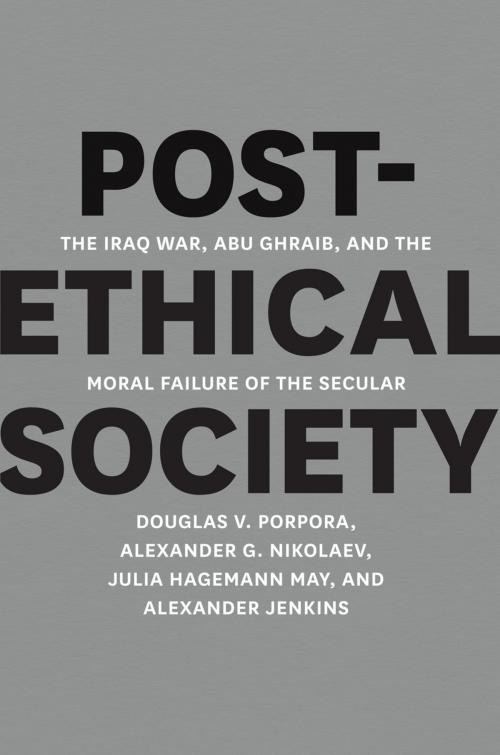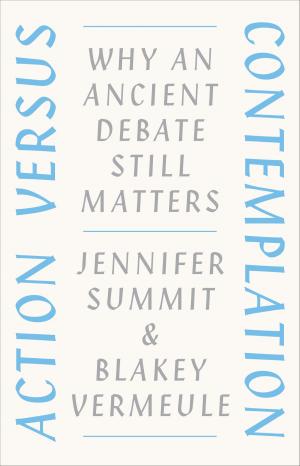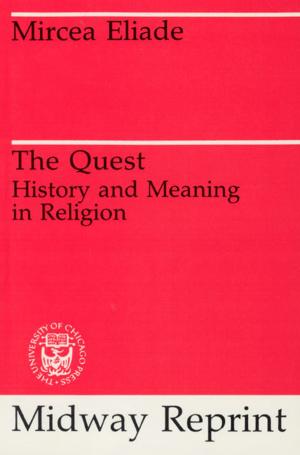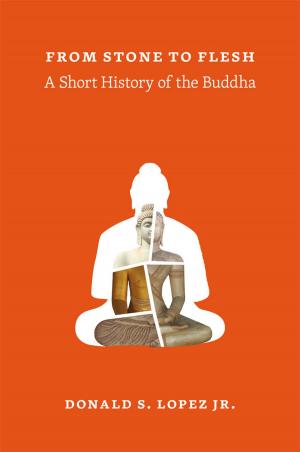Post-Ethical Society
The Iraq War, Abu Ghraib, and the Moral Failure of the Secular
Nonfiction, Reference & Language, Language Arts, Communication, Social & Cultural Studies, Social Science, Sociology| Author: | Douglas V. Porpora, Alexander G. Nikolaev, Julia Hagemann May, Alexander Jenkins | ISBN: | 9780226062525 |
| Publisher: | University of Chicago Press | Publication: | September 7, 2013 |
| Imprint: | University of Chicago Press | Language: | English |
| Author: | Douglas V. Porpora, Alexander G. Nikolaev, Julia Hagemann May, Alexander Jenkins |
| ISBN: | 9780226062525 |
| Publisher: | University of Chicago Press |
| Publication: | September 7, 2013 |
| Imprint: | University of Chicago Press |
| Language: | English |
We’ve all seen the images from Abu Ghraib: stress positions, US soldiers kneeling on the heads of prisoners, and dehumanizing pyramids formed from black-hooded bodies. We have watched officials elected to our highest offices defend enhanced interrogation in terms of efficacy and justify drone strikes in terms of retribution and deterrence. But the mainstream secular media rarely addresses the morality of these choices, leaving us to ask individually: Is this right?
In this singular examination of the American discourse over war and torture, Douglas V. Porpora, Alexander Nikolaev, Julia Hagemann May, and Alexander Jenkins investigate the opinion pages of American newspapers, television commentary, and online discussion groups to offer the first empirical study of the national conversation about the 2003 invasion of Iraq and the revelations of prisoner abuse at Abu Ghraib a year later. Post-Ethical Society is not just another shot fired in the ongoing culture war between conservatives and liberals, but a pensive and ethically engaged reflection of America’s feelings about itself and our actions as a nation. And while many writers and commentators have opined about our moral place in the world, the vast amount of empirical data amassed in Post-Ethical Society sets it apart—and makes its findings that much more damning.
We’ve all seen the images from Abu Ghraib: stress positions, US soldiers kneeling on the heads of prisoners, and dehumanizing pyramids formed from black-hooded bodies. We have watched officials elected to our highest offices defend enhanced interrogation in terms of efficacy and justify drone strikes in terms of retribution and deterrence. But the mainstream secular media rarely addresses the morality of these choices, leaving us to ask individually: Is this right?
In this singular examination of the American discourse over war and torture, Douglas V. Porpora, Alexander Nikolaev, Julia Hagemann May, and Alexander Jenkins investigate the opinion pages of American newspapers, television commentary, and online discussion groups to offer the first empirical study of the national conversation about the 2003 invasion of Iraq and the revelations of prisoner abuse at Abu Ghraib a year later. Post-Ethical Society is not just another shot fired in the ongoing culture war between conservatives and liberals, but a pensive and ethically engaged reflection of America’s feelings about itself and our actions as a nation. And while many writers and commentators have opined about our moral place in the world, the vast amount of empirical data amassed in Post-Ethical Society sets it apart—and makes its findings that much more damning.















